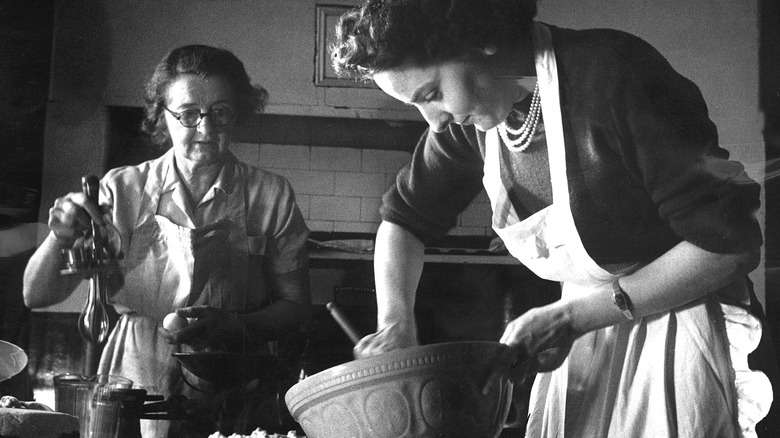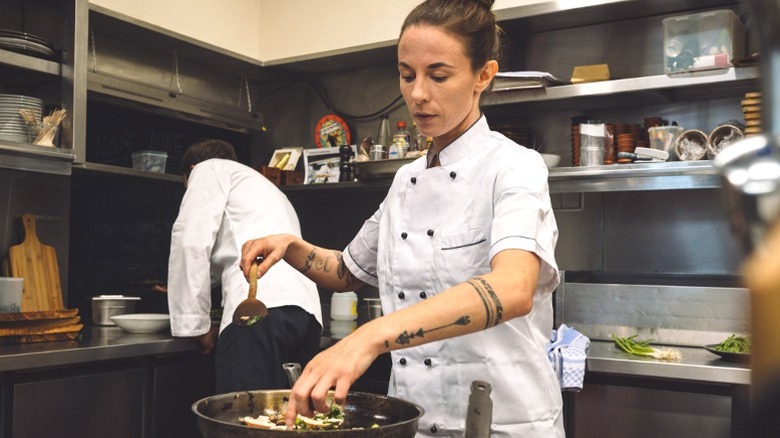The History Of Cookbooks In The Fight For Women's Right To Vote
The stereotype that women belong in the kitchen has been used for centuries, with the connotation that women are bound only to do domestic service. As we know, cooking and taking care of the home are tasks everyone should take a part in. However, during the suffrage movement, in a time when marriage was financially damning for women, those advocating for the right to vote decided to play into their societal expectations in a clever way while also campaigning for their civil rights by using cookbooks.
Cookbooks were a regular part of the kitchen. They were also an outlet where women could share knowledge with each other without oversight. After all, most of their husbands weren't helping out in the kitchen, so why would they ever pick up a cookbook? Suffragettes recognized that having something inconspicuous that women could share with each other was a great way to advocate for their cause and generate money to fund it. Thus, several suffrage cookbooks were born from scholars and activists of the era.
One argument used in anti-suffrage rhetoric was that giving women the right to vote would encourage them to abandon household tasks or make them bad wives and mothers. While this is ridiculous, women still had to walk a fine line by both advocating for themselves but also appealing to the male lawmakers in charge of determining voting rights. Suffragettes creating and selling cookbooks proved that women's rights didn't mean their households took a loss.
Cooking as a reclamation of women's power
It was going to be difficult to get men to open their wallets to women's rights, and suffragettes needed income to fund their movement. They decided to become their own investors. Collecting the knowledge of their mothers and grandmothers and passing it down through cookbooks was a way for women to establish legacies. Something as simple as selling homemade lemon shortbread cookies or publishing a cookbook created financial autonomy. And thankfully, the efforts of the movement paid off with the ratification in 1920 of the U.S. Constitution's 19th amendment that locked in women's right to vote.
Today, women chefs are taken more seriously for their culinary contributions. Many are authors in our list of best cookbooks every baker needs to know and are leading in the industry in so many other ways. It's possible to have a thriving career and be a great mother, wife, or friend if that's what someone chooses. Even Ina Garten herself cooks for her husband as an expression of love. This November, people from all walks of life will be actively participating in our democratic process, and that includes having a woman candidate in the running for president — things that weren't possible over a century ago.

